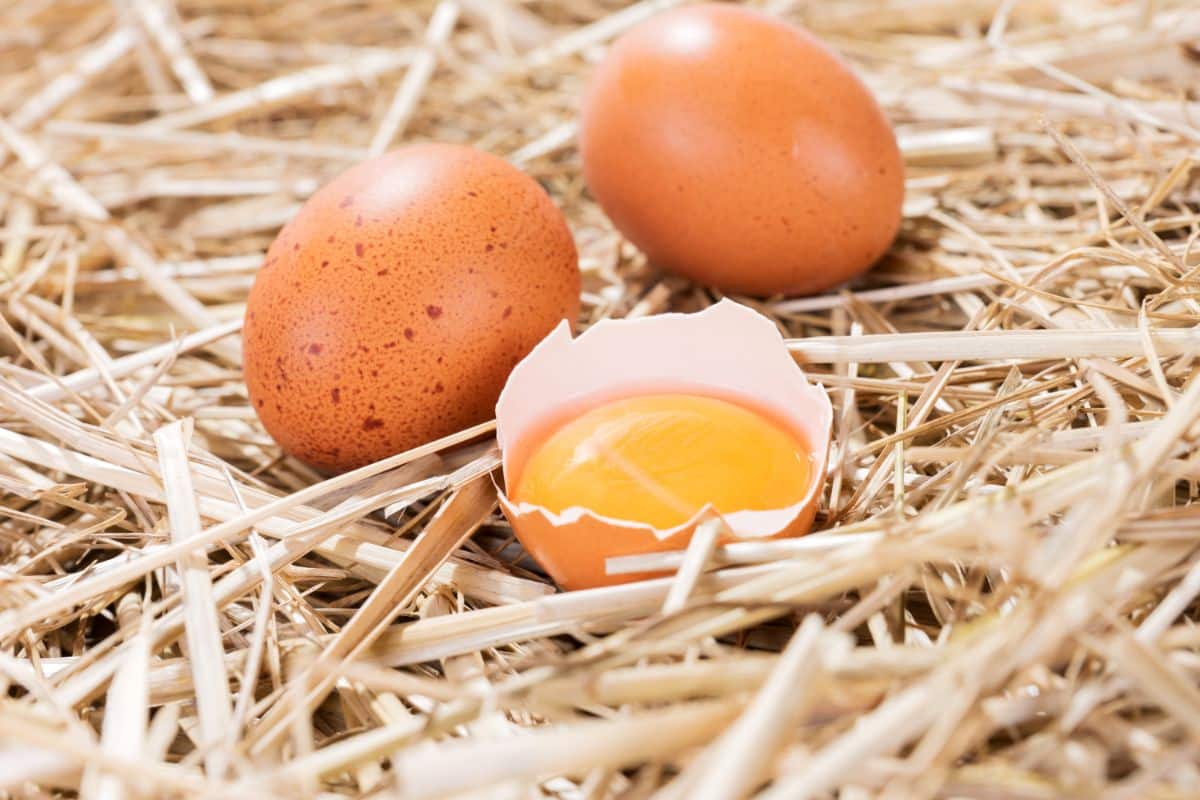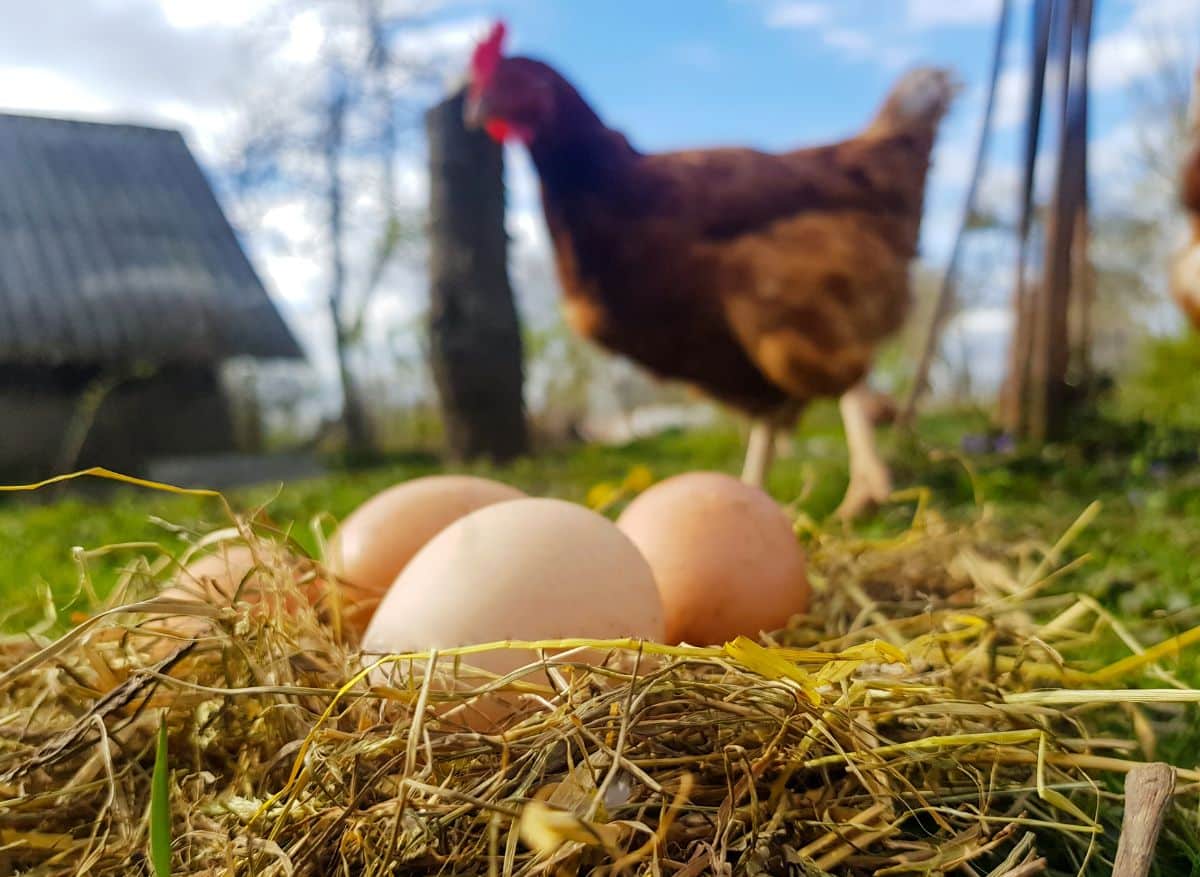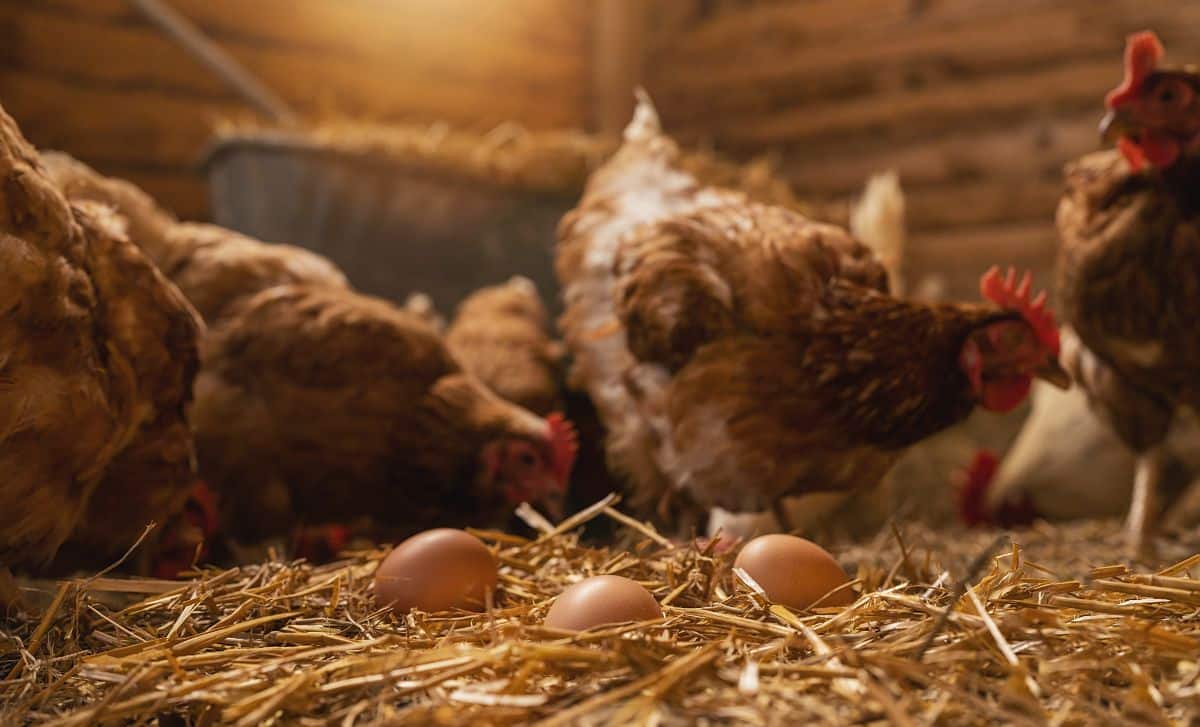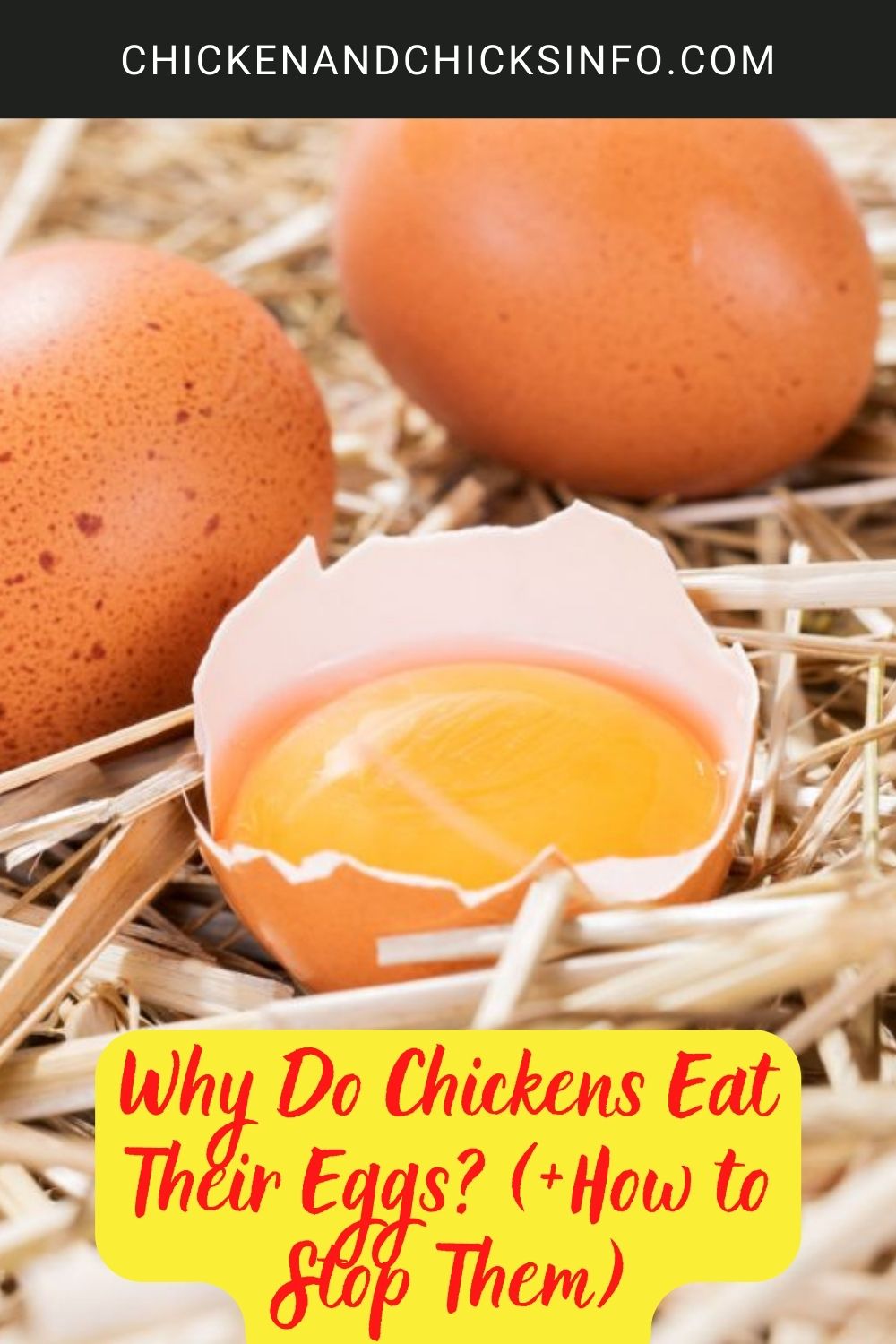
If you’ve noticed you’re getting fewer eggs than you expected from your flock, there’s a chance that your hens are eating their own eggs.
This might sound strange at first, and it’s certainly a habit you need to change. But it’s nothing to worry about from a health perspective.
It does raise the questions, however; why do chickens eat their eggs? And, how can you stop them from eating their eggs?
Don’t despair - there are answers and solutions to these questions and more. Read on to see how you can get to the bottom of this problem yourself.
Jump to:
How Do You Tell If Chickens Are Eating Their Eggs?
Unless you catch them in the act, it can actually be more difficult than you’d think confirming chickens are eating their own eggs.
This is because they will usually eat everything and leave no trace. Chickens are true scavengers, and when they find a food source they like they’ll finish every last scrap. As I’m sure you’re very aware.
If you’re trying to confirm or rule out if your chooks are eating their own eggs, here are the best ways to get to the bottom of it:
Monitor How Many Eggs They Are Laying
Start keeping a record of how many eggs your flock is laying. Compare this to what you think you should be getting, and look for any patterns or trends where you think eggs are disappearing.
If you can narrow this down to individual hens too, that’ll help. You might be surprised by your findings, and you might be able to identify another reason for underproducing hens.
Go Into Their Coop Earlier in the Morning
What time do you typically collect eggs?
It can vary, but most hens will have finished laying by 10 am. Start going into their coop a little earlier each day to see if you can catch their eggs before they have a chance to eat them.
At least close the window of time they have available to eat them. This way, you will either catch them in the act, or you’ll notice the number of eggs you’re getting increasing.
Examine Their Nesting Area for Evidence
If you know eggs are going missing, there’s a chance that a predator is responsible. Rats and birds are common egg thieves. Along with raccoons, dogs, coyotes, snakes, and other animals you might have in your area.
Check the parameters for the coop, along with other possible entry points. If there are ways predators can get in, cut those entry points off.
Take a Close Look at Your Chickens Faces and Feathers
This is the main check that confirms it for most people. Chickens are messy eaters and aren’t clever enough to know were trying to catch them having a nibble on their eggs.
Have a close look at their faces and around their beaks. Any signs of dried egg or bits of the shell? Maybe some shell has fallen and got stuck in their feathers. Give them a little rub down, if they’ve recently eaten some egg there’s a good chance you’ll find some evidence.
Why Do Chickens Eat Their Eggs?

There are a few reasons why hens may start eating their own eggs. The most commonly known reasons are:
Poor or Unbalanced Diet
Eggs are a great source of nutrition. Most notably, they provide a lot of calcium and protein. If a chicken is lacking either protein or calcium in their diet they will instinctively know to turn to eat their eggs.
Accidental Discovery
In some instances, hens will start eating eggs because one accidentally broke and presented the opportunity for them to try some.
This is a problem because a chicken can then develop a taste for eggs and start breaking them on purpose to eat them. So, you need to take a careful look at their living conditions and see if there is anything you can do to avoid accidents.
Overcrowding and boredom are two of the main issues to address. Your chooks should have at least 4 sq ft of space each in their coop, and ideally, plenty of room to roam outdoors.
Living Conditions
Other living conditions to look at include making sure your hens have enough nest boxes; you should provide a minimum of one per every four hens.
They should always have plenty of fresh water available, too. A thirsty chicken might crack open an egg if they have a need to quench that thirst.
Related content - how much water do chickens drink?
Chickens also need somewhere dark, quiet and private to lay eggs - and who can blame them? Failure to provide somewhere meeting these conditions may result in bad laying practices.
Is It Good for Chickens to Eat Eggs?
If your chickens are eating their eggs, you have nothing to worry about from a health viewpoint. It’s more the issue that it’s just not a good habit and that we want the eggs as to why we should stop them.
Eggs provide a good amount of nutrition and are particularly good for sick or injured chicks. After all, egg yolk was their source of nutrition while they were in an egg themselves.
The inside of the egg isn’t the only nutritional part of the egg, either. Some backyard chicken keepers feed their chickens crushed shells as they swear the calcium helps their chicks produce stronger eggs.
If you want to do this, just simply clean and dry out some eggshells after you’ve used the eggs. Then crush them into smaller pieces and add them to your chicken feeder.
How Do I Stop My Chickens From Eating Their Eggs?

As with most problems, preventing chickens from eating their own eggs is a lot easier than curing the problem once it’s started. Don’t let that scare you though, I’m sure you’ll find a solution.
Here are the three main areas to address to help resolve this issue:
Gather Eggs Frequently
If you have one or more hens known to have a taste or a penchant for breaking and eating eggs, the quicker you remove them from their coop the better.
You’ll probably need to do this in combination with some of the other things I’m covering. But checking for eggs more regularly and removing them is always a good idea.
Improve Their Living Conditions
Something within their living conditions is almost certainly going to be responsible. Look at the areas I covered above as possible reasons why they might be eating their eggs.
Ask yourself these questions;
- Do they have enough space and freedom?
- Are they bored and lacking socialization?
- Do they have enough nesting boxes to hold the eggs?
- Is there anything causing them stress?
If it’s time to pimp out their living conditions to increase their happiness and convenience, that’s what you’ll have to do.
Provide Plenty of Good Food and Water
A balanced diet is essential if you want your chickens to be healthy, happy, produce big eggs, and not pick up bad habits like eating their own eggs.
The RSPCA recommends providing chickens at least:
- A good quality poultry pellet as the main staple of their diet
- A variety of fresh fruits, vegetables (read about the benefits of radishes here), herbs (read about the benefits of parsley here), and other greens
- Table foods such as bread, pasta, oats, and other leftovers on occasion
For hens that are laying eggs, you should provide some shells for added calcium as I covered above. It’s an easy way to recycle eggshells too, so why not. That’s how I look at it.
Don’t forget to provide a big bucket of clean drinking water, too. Chickens need access to clean water at all times.
In Summary
In this article, I’ve covered everything from why chickens start to eat their own eggs, some of the factors that contribute to this habit, and loads of ways you can stop it.
To help reassure you that it’ll be ok, I’ve never talked with someone that wasn’t able to overcome and correct this behavior. So, keep positive, try all the things I’ve covered in this article, and I’m sure you’ll put a stop to it.





